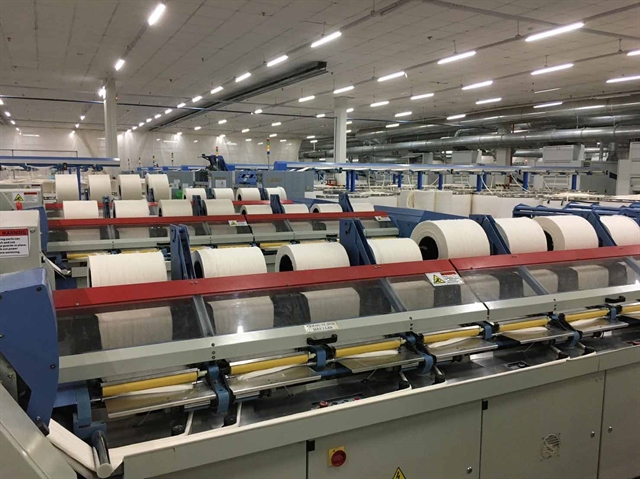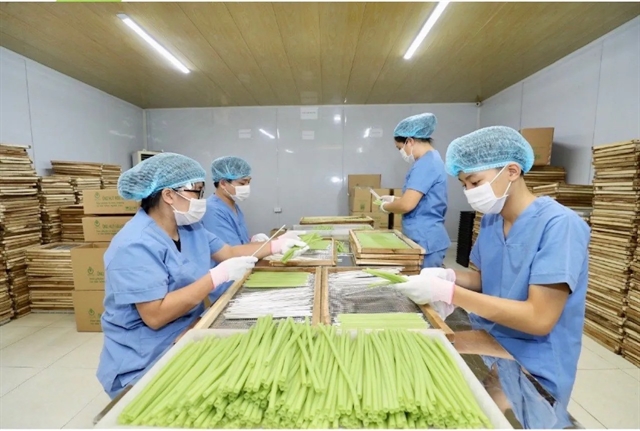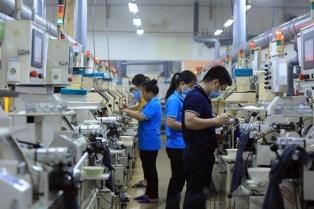In recent years, environmentally conscious startups have introduced a wide range of eco-friendly products, from packaging and organic food to sustainable fashion. Despite their innovation and clear environmental benefits, many struggle to compete with traditional businesses, particularly in sourcing raw materials and offering competitive prices.

HÀ NỘI — Green startups are increasingly seen as vital players in the global push for sustainable development, but many continue to face major obstacles, including high production costs, limited access to advanced technologies and a lack of supportive government policies, industry experts say.
In recent years, environmentally conscious businesses have introduced a wide range of eco-friendly products, from sustainable packaging and organic food to environmentally responsible fashion. However, despite their innovation and clear environmental benefits, many startups struggle to compete with traditional businesses, particularly when sourcing raw materials and offering competitive prices.
High prices remain a major barrier
Quách Kiến Lân, founder of Bảo Lân Textiles in HCM City, said his company has spent more than three years developing cottonised fibre, yarn and fabric from pineapple leaves. Yet high production costs have limited domestic uptake.
The price of fabric made from pandan leaves is twice that of conventional fabrics, prompting many local enterprises to hesitate when bringing products to market, Lân told Người Lao Động (The Labourer) newspaper. He added that more than 70 per cent of the company’s products are currently exported.
Nguyễn Bích Diễm, deputy general director of fashion company Faslink, echoed the concern. She said consumers remain cautious about buying products made from recycled materials because prices are higher than traditional fabrics such as polyester or cotton. Faslink recently introduced a line of fabric made from pineapple leaves, but prices remain high due to research and production costs, she was quoted as told by the newspaper.
Even simple consumer goods, such as eco-friendly straws, face similar pricing barriers.
Lê Văn Tám, director of Sông Hồng Cooperative, which produces vegetable-based straws, said their products are mainly exported to developed markets such as Germany, the UK and Japan, where consumers are more willing to pay premium prices for sustainability. Tám said competing in the domestic market is difficult because prices remain too high for most local consumers.
Phạm Minh Hương, Director of Sustainability & Climate Change Advisory Services at Deloitte Việt Nam, cited a recent survey showing that although up to 50 per cent of consumers are interested in green products, fewer than 30 per cent are willing to pay more for them. That gap highlights the difference between awareness and action in green consumption, she noted.

Limited access to capital and technology
Experts argue the problem goes deeper than price. Many startups are hindered by limited access to appropriate green technologies and a lack of capital to scale production.
Dr Tạ Đình Thi, deputy chairman of the National Assembly’s Committee on Science, Technology and Environment, pointed out that high upfront investment costs make many startups hesitant to expand beyond small-scale trials.
He outlined strict processes, requirements for clean raw materials, and challenges in accessing appropriate technology as major barriers.
In the long term, technology will be the key to reducing the cost of green products, Thi said, suggesting businesses innovate, reduce costs, and expand access to suitable green technology solutions.
Diễm from Faslink said projects using unconventional recycled materials such as fabric made from banana peels or composting mushrooms are still small in scale and face many hurdles in commercialisation.
Besides technology access, there is also a lack of coordination among businesses and supporting parties, she added.
Call for policy support and ecosystem development
Many startups said they believed that to foster meaningful growth, Việt Nam needs targeted policies to support green innovation, including financial incentives, training programmes and public awareness campaigns.
Speaking to the newspaper, Võ Văn Luật, manager of Fuwa Biotech Co’s southern branch, said he hoped for more forums and seminars so the business community can better understand the true value of green products, which not only protect health but also the environment. — VNS





